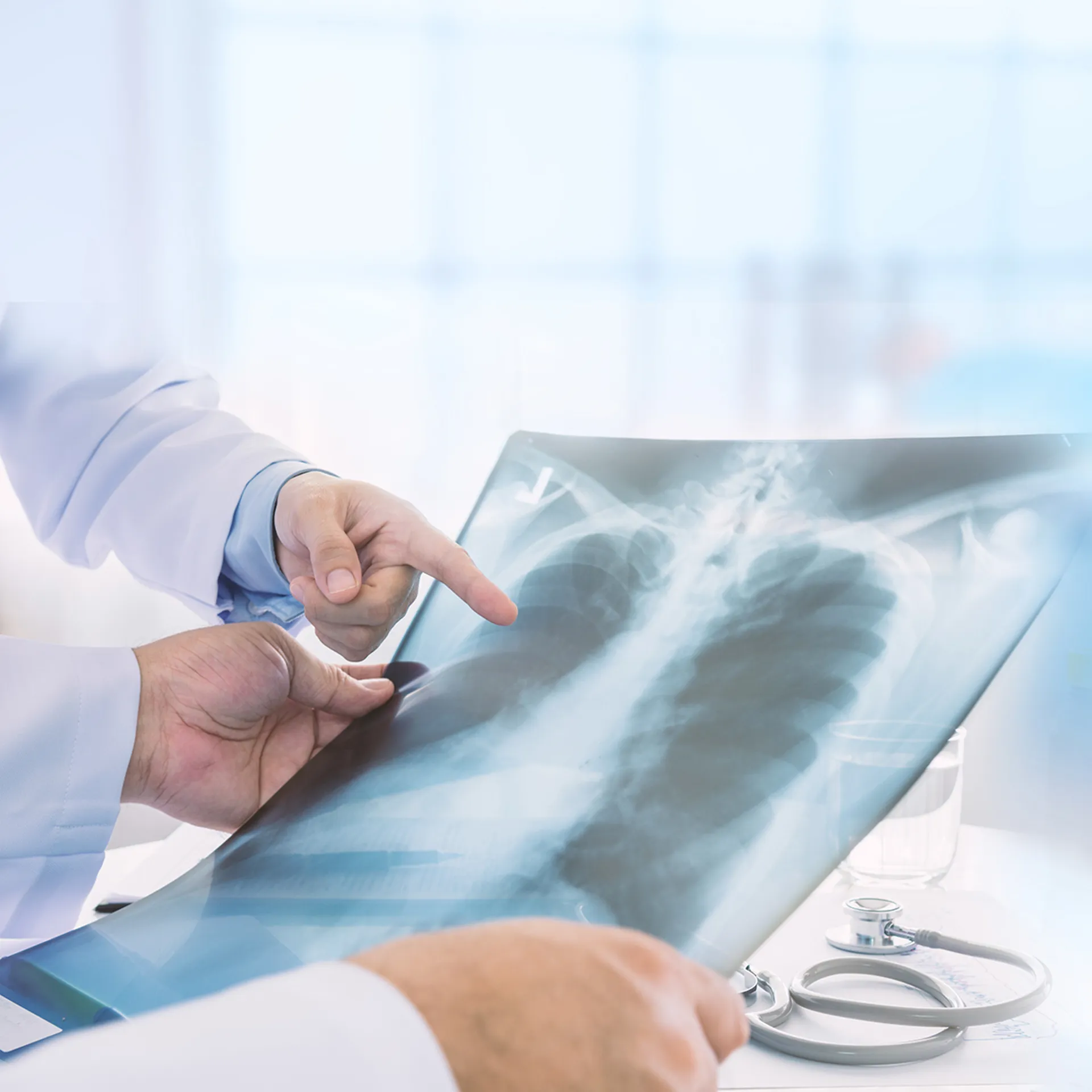Getting a lung cancer diagnosis
Lung cancer can have similar symptoms to other illnesses, so getting a diagnosis can take several steps. Special imaging and pathology tests help doctors figure out if you have lung cancer, what type it is, how big it is, and how far it has spread.
You may have more than one doctor or healthcare professional to help with your diagnosis. They will work together to choose the right tests for you.

Imaging
Doctors use special imaging to look inside your lungs. These tests can show areas that appear unusual, like tumours, spots, or lumps.
Here are some common imaging tests:
- CT or CAT scan: This type of scan takes X-rays quickly from different angles to create a more detailed picture of your body. It can detect smaller tumours than a normal X-ray and be used to see if your cancer has spread.
- PET scan: This scan uses a special type of solution to highlight cancer cells in the lungs. A PET scan is not able to diagnose cancer, but it can help show if your cancer has spread and what stage it is at.
- MRI scan: This scan uses magnets and radio waves to create detailed images of the inside of your body.
- Bone scan: This uses a special substance to see if cancer has spread to your bones.
Pathology tests
Pathology tests use samples from your body to check for diseases. These samples can be taken from blood, urine, poop or small pieces of tissue taken during a biopsy.
A biopsy is when doctors take small samples of tissue or fluid from your lungs to examine it further. This helps them to see if you have cancer, and if you do, what type. A biopsy is the only way to confirm a lung cancer diagnosis.
There are several ways to take a biopsy from your lungs, which include:
- CT-guided core biopsy: A CT scan is used to guide a needle to the exact spot.
- Bronchoscopy: This uses a thin tube with a light and a camera to go through your mouth or nose and look inside your main airways and take a sample.
- EBUS (endobronchial ultrasound biopsy): This type of bronchoscopy includes an ultrasound probe. This can provide a better view into even deeper parts of the lung.
- Transbronchial needle aspiration (TBNA): Often used with an EBUS, a TBNA is used to take samples from areas of the lung close to your main airways. It involves a needle to take a sample for analysis.
- Surgical biopsy: Sometimes, surgery is needed to reach the area and take a sample.
Your doctor may also recommend using part of your biopsy sample for a molecular test. If you do have lung cancer, this can help to see if there are any biomarkers that can help with your treatment options.
Diagnosis and mental health
Reaching a diagnosis takes many different steps for each person living with lung cancer. During this time, it’s normal to experience a range of emotions. It can be overwhelming and very scary.
From the first moment you find out you have it, to treatments and even afterwards, lung cancer can affect everything in your life. It affects your body and your feelings. It can change your relationships with family and friends, and it can impact your work and social life. It can feel like it takes over everything. That’s why it’s so important to get help when you need it.
Your healthcare team is there to support you every step of the way.
- If you have symptoms: They can send you to other health professionals like physiotherapists, dieticians, speech pathologists or palliative care specialists.
- If you’re having a hard time emotionally: They can connect you with psychologists or counsellors.
- If you’re worried about money: They can connect you with a social worker.
Your GP is also a very important part of your healthcare team, even after you’ve been diagnosed with lung cancer.
- If it’s hard to manage your healthcare appointments: They can create a GP management plan (GPMP) to help organise your care with all your healthcare professionals. This can also help you avoid lots of unplanned doctor visits or unnecessary hospital stays.
- If you’re struggling with your mental health: They can create a mental health treatment plan (MHTP). This plan can give you access to up to 10 sessions with a mental health professional each year, and help you feel more in control of your mental health.
National Lung Cancer Screening Program
A new program to help find lung cancer early will start in July 2025. This program is called the National Lung Cancer Screening Program (NLCSP). You can learn more about who can join the program and how it works on the Australian Government’s NLCSP website. Doctors and other healthcare workers can also find information on how they can help with this program.
Was this page helpful?
Good job! Please give your positive feedback
How could we improve this post? Please Help us.